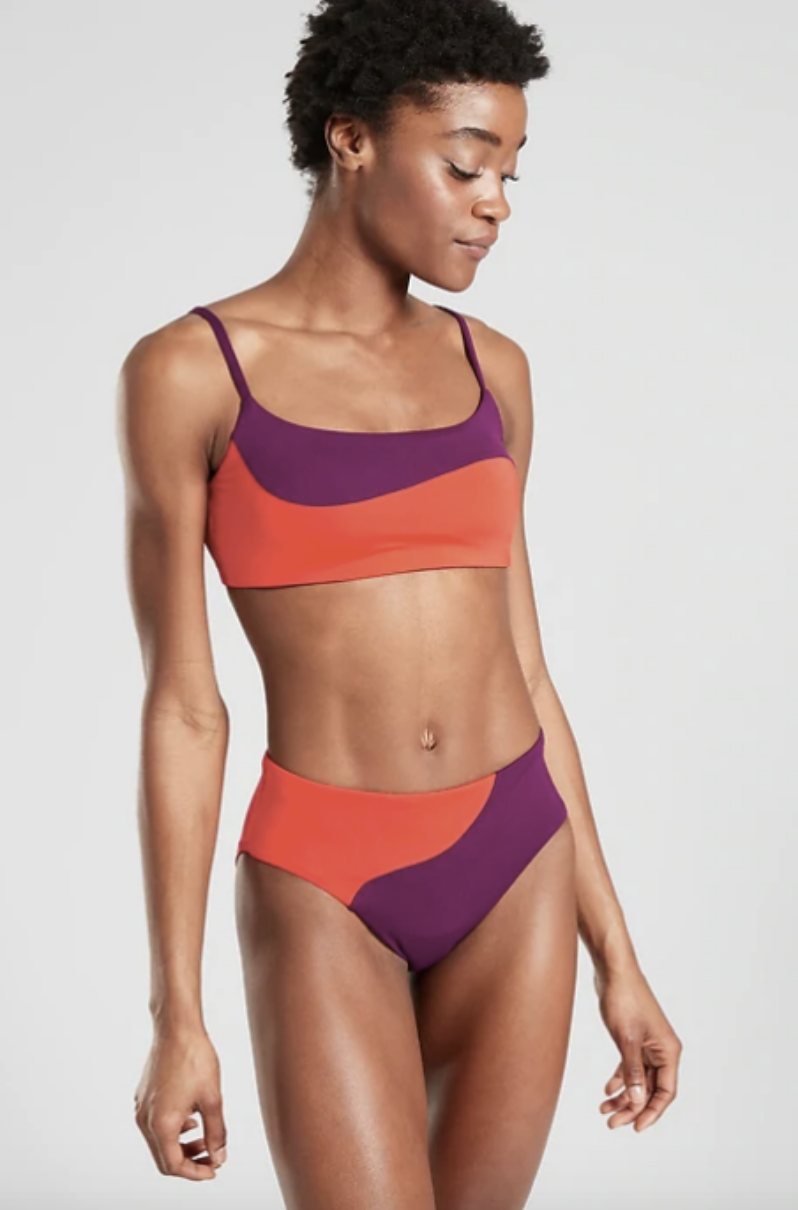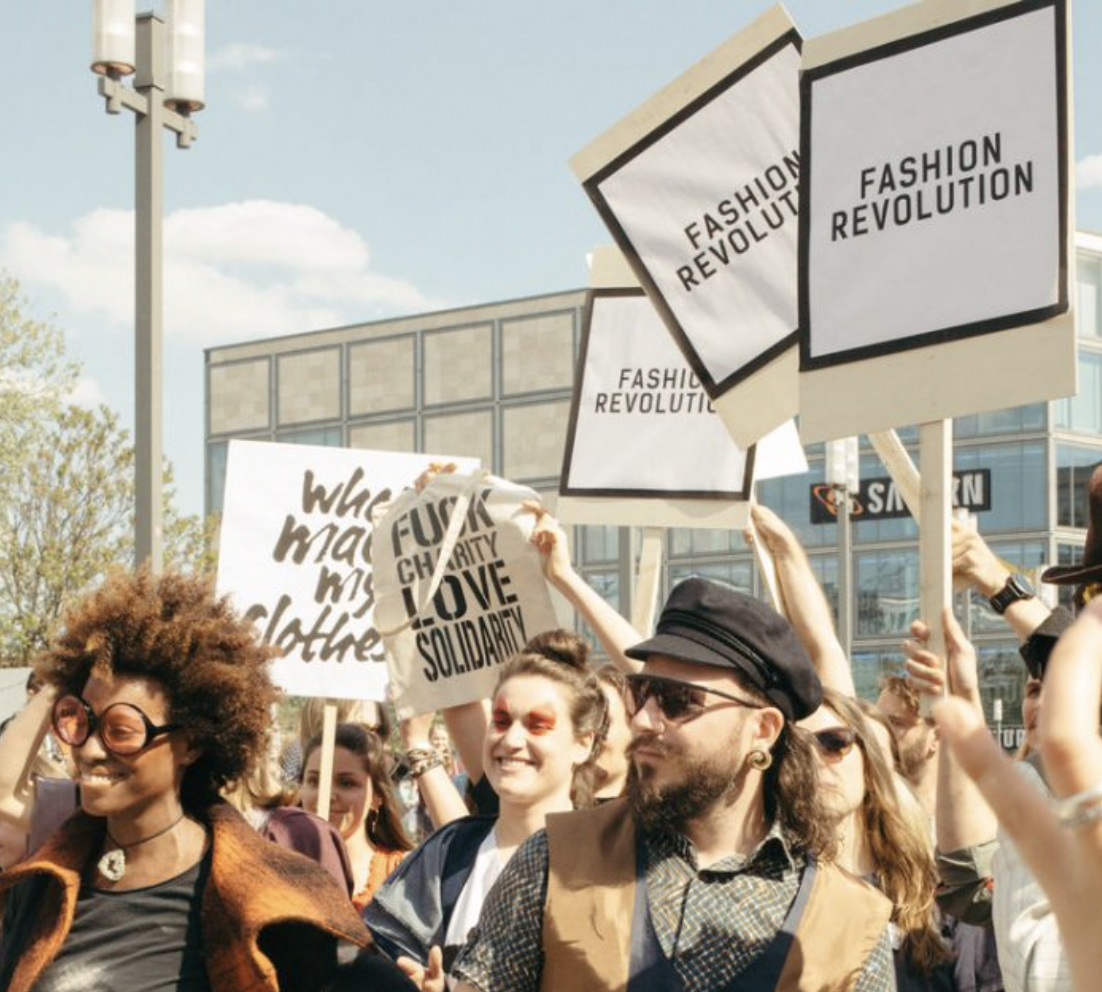The Consumer and the Maker
“Fashion provides dignified work, from conception to creation to catwalk. It does not enslave, endanger, exploit, overwork, harass, abuse or discriminate against anyone. Fashion liberates worker and wearer and empowers everyone to stand up for their rights.” – Manifesto, Fashion Revolution.
Fashion Revolution, Berlin
Who made your clothes?
Poor workplace practices are infiltrating through many industries, especially in fashion. We explore some of the things we could do as consumers and package providers to help prevent this from happening. There’s much to say about the intersectionality of clothing and human rights, and without diving too deep into politics, the honest truth is that capitalist companies who exploit underprivileged workers leave in their wake corrupt institutions that are inextricably unsustainable. With that said, there are many brands today that attempt to dismantle this truth, and display conscious, ethical and fair practices.
What is happening in the apparel factories?
From the makers to the consumers, there are global movements to prevent unsafe and unethical conditions for workers in the fashion trade. Aside from the environmental need for people to buy fewer quantities of clothes, there is a need for action from the ones in charge. We could come up with a long list of fast fashion brands that treat their foreign or migrant workers less than humanely. There is a high cost to pay for cheap fashion, and educating ourselves is one of the first steps we can take to become aware of this. We’ve all heard of sweatshops. The outsourcing of work for cheap labour in offshore countries is nothing new to big corporations. To offer a small glimpse into the daily lives of these garment makers, consider their typical schedule; working straight from 7am to 6pm with no compensation for overtime work. This just scratches the surface of how it’s really like. Labour rights violations are prevalent in the developing world. Note that not all companies that produce their items overseas lack fair employment. Some brands are transparent, and offer equal opportunity to their workers.

Athleta Bikini
The problem with regulating these rights violations is that there is no real government compliance, no real figure to oversee these conditions, and the impending capitalism and consumerism negates the push to solve this crisis. To put it plainly, workers become ‘disposable’ just like the clothes that they make. Believe it or not, 97% of the clothing we wear today is made overseas, so there’s no doubt that we’ll be disconnected from the makers of our garments. Note that not all companies that produce their items overseas lack fair employment. Some brands are transparent, and offer equal opportunity to their workers.
What can I do? I’m Just one Person
Ever heard of the saying think globally, act locally? Everything we do will create a ripple effect into the economy – no matter how small our contributions are. Here are some first steps we can take to become a conscious consumer:
- Research the clothing company or brand; know where your garment is coming from
- Read up on grassroots that vouch for workers rights: Fashion Revolution is an excellent organization that values the environment, people, and equal pay over profit growth.
- Think about how you can end ‘throwaway’ culture and instead preserve your belongings.
- Do shop locally where heritage, craftsmanship, and preservation of humane working conditions are the core values behind a brand.
- Educate yourself and your peers on the people in power and what they can do to facilitate more transparency about the global fashion industry and its supply chains.
- Look for ways to minimize the divide between consumers and producers. Provide more visibility to overseas factories and shed light on the working conditions. This is not easily done alone, and requires collective action and government participation.
- Hold yourself accountable and only buy from fair, ethically sourced businesses wherever possible.
This may seem like a hefty list of tasks, but it all starts with a conscious mindset in order to push for change. Fashion should lift up people up, not endanger or exploit them. It should enrich the livelihood for the consumer, and ultimately the maker.
In an effort to celebrate Fashion Revolution’s mission, and to support overseas workers during the troubling times of COVID-19, the organization is urging all of us to reach out to the global communities and brands with the hash tag #WhoMadeMyClothes? and recognize the worker behind the label.

